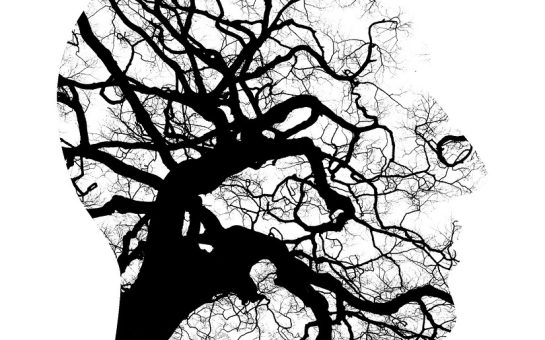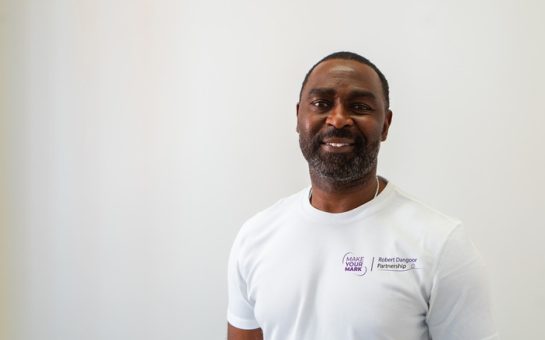A stroke survivor has spoken of how she thought she was going to die after having two strokes in the space of a week brought on by the contraceptive pill.
In April 2015, 27-year-old Hanna McGrath, who was 23 at the time, was working as a nurse on the Acute Spinal Cord Injury in Sheffield when she lost the use of her left hand and arm after taking the Rigevidon pill.
“I was doing the rounds on a night shift when I became unwell. I just thought it was stress and put it down to being tired.
“Later I was making a drink at the sink when I got the worst imaginable headache at the back of my head. I can only describe it as being hit with something heavy.
“The room then began to tip like I was on a pirate ship and I knew I needed to get to the ground.
“I had been working night shifts so assumed I was tired, stressed and dehydrated.”
After three long hours and still unsteady on her feet, Hannah negotiated the stairs and decided to crawl up them.
“The pain was so bad I thought I was going to be sick. My housemate came home a few hours later and I burst into tears. I honestly thought I was going to die.”
Later that week Hannah returned to work.
“I still didn’t feel right. I felt what I can only describe as off. I was walking into things. People thought I had an ear infection. My hand started spasming and I couldn’t pick up medication for my medication rounds.”
Attributing the spasms to a trapped nerve, Hannah was later informed that an MRI scan showed she had two blood clots on her brain and that what she thought was tiredness had actually been two strokes.
“I couldn’t believe it and asked to see the scans on the computer screen. Surely I was too young to have a stroke? I felt totally numb. I didn’t have facial droop
or any of the usual signs associated with having a stroke, just weakness on my left side.”
Hannah spent the next eight days in hospital having every type of scan and test possible.
The doctors found she had a hole in her heart which allowed the blot clots to reach her brain.
“The doctors couldn’t tell the exact timings but they were over a two-week period.
“The working diagnosis was that the contraceptive pill I had been taking (Rigevidon) caused the strokes.”
The road to recovery for her was more emotional than physical as her grandad had passed away from a stroke two months previous.
Little things once took for granted were now an obstacle to overcome.
“Physically I looked fine, but the fatigue and emotional side of it were the biggest adverse effect. Something I can’t even comprehend now was that I was 23-years-old, fit and healthy. I’d just booked a one-way ticket to travel the world with my friend Fran – this wasn’t in my plan.
“I really struggled with anxiety and fatigue and didn’t feel well enough to continue as a nurse, so I moved back in with my mum in Norwich.
“Fortunately I haven’t had any long term physical issues. My left hand got stronger after occupational therapy and, although I wouldn’t trust it to hold a cup of tea, it doesn’t stop me from doing anything I did before. My balance and co-ordination were affected the most. My eyesight was altered but nothing a pair of glasses couldn’t fix. Getting used to being able to drive again and get back to normality was hard.”
Eventually she started to work a couple of hours a week in a pub kitchen and nearly a year after her stroke Hannah started to get her life back on track and returned to nursing where she moved to and started a post in Manchester Royal A&E.
Hannah also supports the Stroke Association’s Rebuilding Lives campaign in which she has helped raise £5,000. The Association uses stroke survivors’ stories to advocate that, with the right support, stroke survivors can make the best possible recovery.
“The Young Stroke Network is a befriending service for stroke survivors of working age. As a volunteer I would ring someone on a weekly basis and see how they were getting on with their rehabilitation and offer support. The weeks and months after my stroke I was very anxious and felt isolated. I would often google young stroke stories to try and find reassurance so I was keen to get involved in the network.”
Explaining the worrying misconception that people attribute strokes to be linked mostly to older people, Hannah added:“I want to raise awareness that strokes can happen to anyone. They affect people of all ages.
“I didn’t have any of the usual signs associated with a stroke – there was no forewarning. People assume it is linked with old people but it can happen to anyone.”
In England one in six people will have a stroke in their lifetime and it is estimated that around 30 percent of people who have had a stroke will go on to experience another one.
Public Health England Director Professor Julia Verne said that stroke is still one of the leading causes of death in England.
“While it is often associated with older people, the latest research shows that people are having strokes at a younger age. Everyone needs to be aware of the signs.”
Rigevidon states on the pack that in “rare cases a blot clot can block blood vessels and cause serious problems.”
For everyone in 10,000 pill-takers there will be the ‘very rare side effects’ of it can cause a tumour on the liver, immune system disease, inflammation of organs and blot clots.
In an another worrying development a book about the contraceptive pill entitled How The Pill Changes Everything has been newly released this month. The book, written by Doctor Sarah E Hill, a Texas-based psychology professor, lifts the lid on the changes it brings to our outlook, personality and even our behaviour.
She claims that women and the pill may become less able to cope with stress, have an increased risk for anxiety and depression and may suffer increased problems with their memory as she calls for more awareness and research.
Calls for the pill to be banned come off the back of young deaths linked with taking it.
However, experts claim the links between the contraceptive pill and death are only suspicious rather than scientific proof but, given that there are still many upended questions that need answering, it begs the question is any contraceptive pill safe to take as all side effect avenues have yet to be fully explored.



